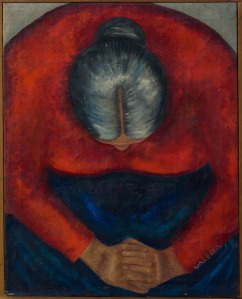 Addiction as a Disease
Addiction as a Disease
The latest scientific, evidence based thinking refers to addiction as a brain disease. People who become addicted have a brain-based disease, or a chemical-based predisposition to becoming addicted to alcohol or drugs. Some of us can drink alcohol and indulge in narcotics without becoming addicted. Others can’t.
When my husband and I were young, we indulged in the common recreational drugs that were available at the time. Occasionally while we were dating, we smoked pot, or took speed, or dropped acid. It seemed harmless at the time. Neither of us became addicted. By the time we got married, we weren’t using narcotics, except for a few puffs on an occasional joint. By the time we had kids, we didn’t do that either. It just wasn’t part of our lifestyle anymore. We continued to drink occasionally. And we still do–mostly beer (him) and wine (me). We might even drink something harder, a cocktail for instance, during special outings or at a back-yard BBQ.
But we don’t worry that we may come addicted. It’s just not an issue.
For our son though, it is an issue. His initial use of alcohol and narcotics led to an addiction that his father and I never got. We weren’t physically or chemically inclined to become addicted. He was.
Was the fact that his narcotic use led to addiction because he was morally weak? Because he was too stupid or weak-minded or self-indulgent that he could not use narcotics moderately for recreational purposes only, as his parents had?
No. My husband and I never struggled with trying to “resist” drugs or alcohol. We could use it or not use it whenever we wanted. We weren’t morally superior because we used in moderation and eventually stopped using because it no longer interested us and wasn’t desired.
Yet because his early drug use led to a severe addiction that lasted years, and our early drug use didn’t, he is considered a social pariah, and we are considered upstanding citizens.
Our drug use never created an overwhelming desire to use more and more. We never had to use “will-power” to stop using. We never had to pray to stop using. We never had to go to rehab or 12-step. It never tried to take over our lives. It never affected us the way it affected our son. We weren’t better than him. Our brain chemistry was just different, so it was never a problem for us.
Believe it or not, some people who use heroin do not become addicted. They just don’t. It is considered one of the most powerful drugs there is, yet if I used it, I know I would not become addicted. Not because I’m stronger than other people who become addicted to it. But because I’m not chemically inclined to do so.
Yet, as a society, we still claim moral and spiritual superiority to people who become addicted. We still blame them for their addiction. We still think they are weak or immoral or bad. We still think it’s their fault. Even those who “know” addiction is a disease, treat addiction like a social or moral or spiritual failing. We’ve become conditioned to think that way.
Even addicts buy into this thinking. Even mothers of addicts.
Addiction as a Moral Failing
I’ve been participating in a movement by mother’s of addicts, where we try to help each other cope with the difficult work we have to do in trying to help our sick children. And we’re also trying to help society understand addiction as a disease, to blaming the victim of addiction for the disease, and to erase the stigma attached to it. Yet even within that forum, I still hear mothers blaming their children for their addiction.
Here’s what one mother wrote recently, a mother who had been an addict herself once. She starts off comparing the abuse of the welfare system to the abuse of drugs:
“Welfare has gotten a bad rap by people who manipulate the system and do nothing to better their situation. Sort of like the addict who continually relapses after they have the tools and are just to hard-headed to use them because they know how to manipulate their addictions right back into a worse situation than they started in.”
This same mother earlier called addiction a disease. Yet she goes on to say that relapse happens not because the disease that went into remission has now returned (as we do with cancer patients), but because they are “too hard-headed” to do what the doctors told them to do. Then she goes on to say that the depression and other mental issues that are produced by the disease are “self-inflicted.” As if they brought this on themselves by becoming addicted in the first place: It’s their fault.
Here’s another statement from a mother, quoting from a drug counseling textbook that she agrees with:
“Addiction is a disease of isolation; addiction is the solution to [that isolation] and the consequence of [that isolation], the addict’s impaired ability to develop and maintain relationships”.
The book admits that addiction is a disease, but then goes on to blame the disease on the “addict’s impaired ability to develop and maintain relationships.” Really? So people with good relationships and social skills never become addicted? Only socially impaired people become addicted? Only people with “isolation” issues?
These statements are another way of blaming the victim of addiction. He’s inferior, socially impaired, isolated. Therefore he becomes addicted to alleviate the isolation and feel “normal.” This stigmatizes the addict.
The fact is, so-called normal people with healthy relationships and good social skills become addicted. Doctors, lawyers, politicians, actors, musicians, plumbers, teachers, and preachers become addicted. Not just social misfits.
Addiction as a Spiritual Failing
Another mother goes on to say that 12-Step programs are so important for addicts, because they help them discover their “true selves” rather than hiding behind a false “social” self. In other words, people who become addicted weren’t as spiritually evolved or as in touch with their “true selves” as the rest of us. That’s why they need 12-step programs and we don’t.
Again, this is placing a stigma on addicts: People who use drugs are spiritually inferior, less evolved, than people who don’t use drugs.
This is perhaps my biggest gripe with 12-Step programs—the belief that you and I don’t need them. Just the poor, weak addict. The rest of us are already in touch with our “higher selves.”
To be clear: 12-Step programs, which are spiritually based, are wonderful programs for anyone who wants to acquire a spiritual practice, whether they are addicts or not. But to assume that people who are addicts need them more than the rest of us, is to assume that addiction is a sign of spiritual failing rather than a chemical imbalance: If only they had been more spiritually evolved, they never would have become addicted. Do we say this about cancer victims? People with heart disease?
Some addicts may find that 12-steps programs help them to cope better deal better with their disease. It may help them to recover, to keep the disease in remission, to abstain from the alcohol or drugs that will cause a relapse.
Spiritual programs help cancer victims too. It helps them to have hope, it calms and comforts them, it lowers blood pressure, it builds the immune system, it helps them to heal. It may even help them to become in touch with their truer selves. But we don’t assume cancer patients are less in touch with their truer selves than the rest of us.
Just the addict deserves that stigma, it appears.
Breaking the Stigmas of Addiction
The acceptance of addiction as a disease is only now becoming the norm. But there are so many assumptions about addiction still circulating, consciously and unconsciously, that even doctors, addiction counselors, and rehab programs still blame the addict for the addiction, still treat these patients as if they are morally, socially, and spiritually impaired.
Even those whose loved ones are suffering from addiction slip into this mode of thinking.
We need to call them on it when they do. We need to be alert, and dismantle the stigmas wherever they appear.
 Slowly, since my last post, my son and I have been working through the hurt and pain of our last encounter. I still feel a little soreness, a little trepidation, around my heart. I’m still half-holding my breath. But things are working themselves out.
Slowly, since my last post, my son and I have been working through the hurt and pain of our last encounter. I still feel a little soreness, a little trepidation, around my heart. I’m still half-holding my breath. But things are working themselves out.








